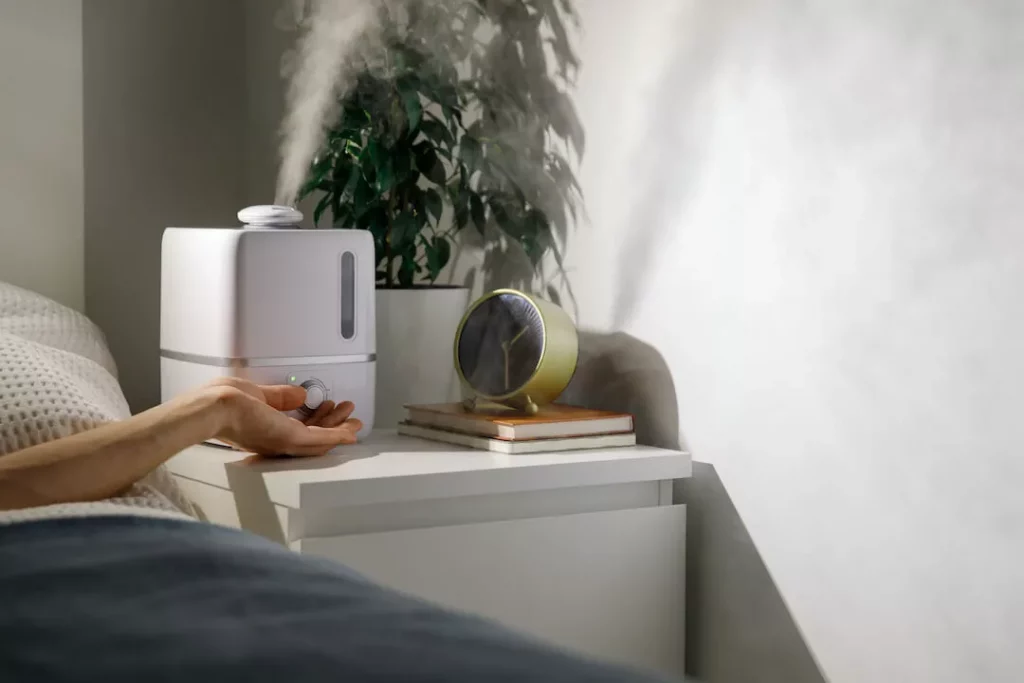We will explore in this article the key differences between asthma attack vs panic attack, as well as the causes, symptoms, and treatments of each condition.
Asthma and panic attacks are both conditions that are affecting millions of people around the world.
While these two conditions can cause respiratory problems, chest tightness, and shortness of breath. But there are important differences between the two conditions.

What is Asthma Attack?
An asthma attack is a sudden exacerbation of asthma symptoms that can range from mild to life-threatening. Asthma is a chronic respiratory disease that affects the airways.
Asthma affects people of all ages but is more common in children and young adults.
The number of estimated people who suffer from asthma is around 235 million worldwide and in the US about 26 million people have asthma.
What Are the Symptoms of Asthma Attack?
Symptoms of an asthma attack can vary from person to person but may include:
- Shortness of breath (difficult to breath in/out)
- Chest tightness
- Coughing
- Wheezing (high-pitched whistling sound of breath)
- Difficulty speaking due shortness of breath
- Dizziness or lightheaded
- Fatigue or feel like extremely tired and worn out
- Anxiety
Asthma attack symptoms can range from mild to life-threatening. If you experience any of the above symptoms, it’s important to seek medical attention immediately.

What Are the Causes of Asthma Attack?
Many different triggers can cause an asthma attack. These triggers can be different for each person. Some common asthma triggers include:
1. Allergens
Allergens such as dust, pollen, mold, and animal dander can trigger an asthma attack.
2. Respiratory Infections
Respiratory infections such as the common cold or the flu can cause an asthma attack.
3. Exercise
Exercise can trigger an asthma attack in some people because it causes the airways to constrict.
4. Cold Air
Cold air can trigger an asthma attack because it causes the airways to constrict.
5. Asthma Medications
Asthma medications, such as beta-agonists, can sometimes cause an asthma attack.
6. Air Pollution
Air pollution can trigger an asthma attack because it irritates the airways.
7. Strong Odors
Strong odors, such as those from perfume, paint, or cleaning products can trigger an asthma attack.
8. Weather Changes
Weather changes such as cold weather or high humidity can trigger an attack.
9. Emotional Stress
Stress can trigger an asthma attack because it can cause the airways to constrict.

How to Treat Asthma Attack?
If you are experiencing an asthma attack, it is important to seek medical help right away. Treatment for an asthma attack will vary depending on the severity of the attack.
Mild Asthma Treatment
If you have mild asthma, you may be treated with a rescue inhaler. This is a medication that relaxes the airways and helps you to breathe more easily.
Moderate or Severe Asthma Treatment
If you have moderate or severe asthma, you may be treated with corticosteroids. This is a medication that helps to reduce the inflammation in the airways.
You may also be given oxygen to help you breathe.
Asthma Attack Home Remedy
There are some home remedies that may help to relieve the symptoms of an asthma attack. Some of these home remedies include:
1. Drink Warm Liquids
Drinking warm liquids, such as tea or soup, can help to loosen mucus and open the airways.
2. Inhale Steam
Inhaling steam can help to loosen mucus and open the airways.
3. Use a Humidifier
Using a humidifier can help to add moisture to the air and loosen mucus.
4. Take Over-the-Counter Medications
There are a variety of over-the-counter medications, such as antihistamines and decongestants, that can help to relieve asthma symptoms.
Asthma attacks can be very serious and even life-threatening. If you think you are having an attack, it is important to seek medical help immediately.
Asthma attacks can be treated with medication and by avoiding triggers.

Now we have learned everything you need to know about Asthma Attack, let’s now talk about Panic Attach to know about the differences between asthma attack vs panic attack.
What is a Panic Attack?
A panic attack is a sudden onset of intense fear or anxiety that can cause physical symptoms, such as chest pain, shortness of breath, and dizziness.
Panic attacks can be very frightening and may feel like you are having a heart attack or dying.
According to the National Institute of Mental Health, about 9 million of Americans (± 3% of total population) suffer from panic disorder in a given year.
It is estimated that only about 1/3 of people with panic disorder seek treatment.
Panic Attack and Anxiety Symptoms
The symptoms of a panic attack can be very similar to the symptoms of anxiety. However, there are some key differences.
The main difference is that the symptoms of a panic attack are much more intense and tend to come on suddenly. The symptoms of anxiety are more chronic and may not be as severe.
The symptoms of a panic attack may include:
- Chest pain or feel like heart attack
- Shortness of breath or feel like suffocating
- Heart palpitations (heart pounding)
- Dizziness or feeling to faint
- Sweating
- Trembling or shaking
- Chills or hot flashes
- Nausea or feel like vomiting
- Fear of losing control or feel like going crazy
- Fear of dying
As you can see, the symptoms of a panic attack can be very intense and may even feel life-threatening.
Panic attacks can be very frightening and may cause you to feel like you are losing control.

What Are the Causes of Panic Attack?
The causes of panic attacks are not fully understood, but there are a number of factors that may contribute to them. Some of the possible causes include:
1. Genetics
Panic attacks may be hereditary and may be passed down from generation to generation.
2. Stress
Stress is a common trigger for panic attacks. When you are under stress, your body releases adrenaline, which can trigger a panic attack.
3. Traumatic Events
Traumatic events, such as a car accident or the death of a loved one, can trigger panic attacks.
4. Substance Abuse
Substance abuse, such as alcohol or drug use, can also trigger panic attacks.
5. Other Psychological Disorders
Other psychological disorders, such as anxiety or depression, can also trigger panic attacks.
Treatment for Panic Attack and Anxiety
If you are experiencing panic attacks or anxiety, it is important to seek medical help. There are a number of treatment options available, including medication and therapy.
Medication
There are a number of medications that can be used to treat panic attacks and anxiety.
The most common medications are anti-anxiety medications and antidepressants such as selective serotonin reuptake inhibitors (SSRIs).
Therapy
There are a number of different types of therapy that can be used to treat panic attacks and anxiety. The most common types of therapy are cognitive-behavioral therapy and exposure therapy.
Cognitive-behavioral therapy (CBT) is a type of therapy that helps to change the thoughts and behaviors that contribute to anxiety and panic attacks.
Exposure therapy is a type of therapy that helps you to face your fears and learn to cope with them.
Panic Attack Home Remedy
There are a number of home remedies that can be used to help treat panic attacks. Some of the most common remedies include:
1. Deep Breathing
Deep breathing is one of the most effective ways to calm down during a panic attack. When you are having a panic attack, your breathing becomes rapid and shallow.
Taking deep breaths will help to slow your breathing down and will help to calm you down.
2. Progressive Muscle Relaxation
Progressive muscle relaxation is another effective way to calm down during a panic attack. When you are tense, your muscles tend to tighten up.
Progressive muscle relaxation involves tensing and relaxing different muscle groups in your body. This will help to relieve tension and will help to calm you down.
You can achieve progressive muscle relaxation by following these steps:
- Lie down or sit in a comfortable position.
- Tighten the muscles in your hands, arms, stomach, thighs, calves, and feet each group separately for 5 seconds.
- Relax your muscles for 5 seconds, then repeat the process till you feel relaxed.
3. Visualization
Visualization is a technique that involves picturing yourself in a calm and relaxing place. This can be helpful in calming down during a panic attack.
4. Meditation
Meditation is a great way to focus your mind and to calm your nerves. There are a number of different meditation techniques that you can use. Find one that works best for you and practice it regularly.
5. Exercise
Exercise is a great way to release tension and to calm your mind. When you are feeling stressed or anxious, go for a walk or do some other form of exercise. You will feel better and it will help to clear your head.

We hope you have now learned about the key differences between asthma attack vs panic attack in addition to the symptoms, causes, treatments, home remedies of each condition.
Asthma Attack VS Panic Attack Comparison Table
The following table summarize the major differences between Asthma Attack vs Panic Attack in a simple way:
Asthma Attack
- Causes: Allergy, Respiratory Infections, Stress
- Symptoms: Tight Chest, Wheezing, Coughing
- Treatment: Inhaler, Medication
- Home Remedy: Drink Warm Water, Humidifier
- Severity: Mild, Moderate, Life Threatening
Panic Attack
- Causes: Genetics, Trauma, Disorders
- Symptoms: Chest Pain, Fear, Sweating
- Treatment: Psychiatric, Medication
- Home Remedy: Meditation, Exercise
- Severity: Mild, Moderate, Severe
Conclusion
Asthma and panic attacks are both conditions that can cause respiratory problems, chest tightness, and shortness of breath. But there are important differences between asthma attack vs panic attack.
While panic attacks are a type of anxiety disorder that can cause a sudden onset of fear or anxiety.. Asthma is a chronic respiratory disease that affects the airways.
If you think you may be having asthma or panic attack, it is important to seek medical help immediately.
Shop Top-Featured Panic Attack and Asthma Relief Supplements on Amazon
Thanks for reading!
Did you enjoy this story about asthma attack vs panic attack? Please comment below and share it. You may also want to checkout How to Improve Memory Retention and Concentration and Sleeping Benefits for Health.
References: